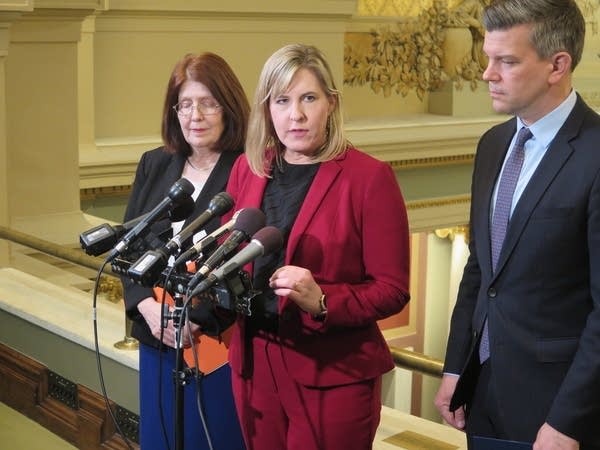Hortman: Senate Republicans ‘needed to stay at the table’ in special session

Minnesota House Speaker Melissa Hortman, DFL-Brooklyn Park, spoke about the coronavirus at the Minnesota Capitol on March 9.
Tim Pugmire | MPR News
Go Deeper.
Create an account or log in to save stories.
Like this?
Thanks for liking this story! We have added it to a list of your favorite stories.


